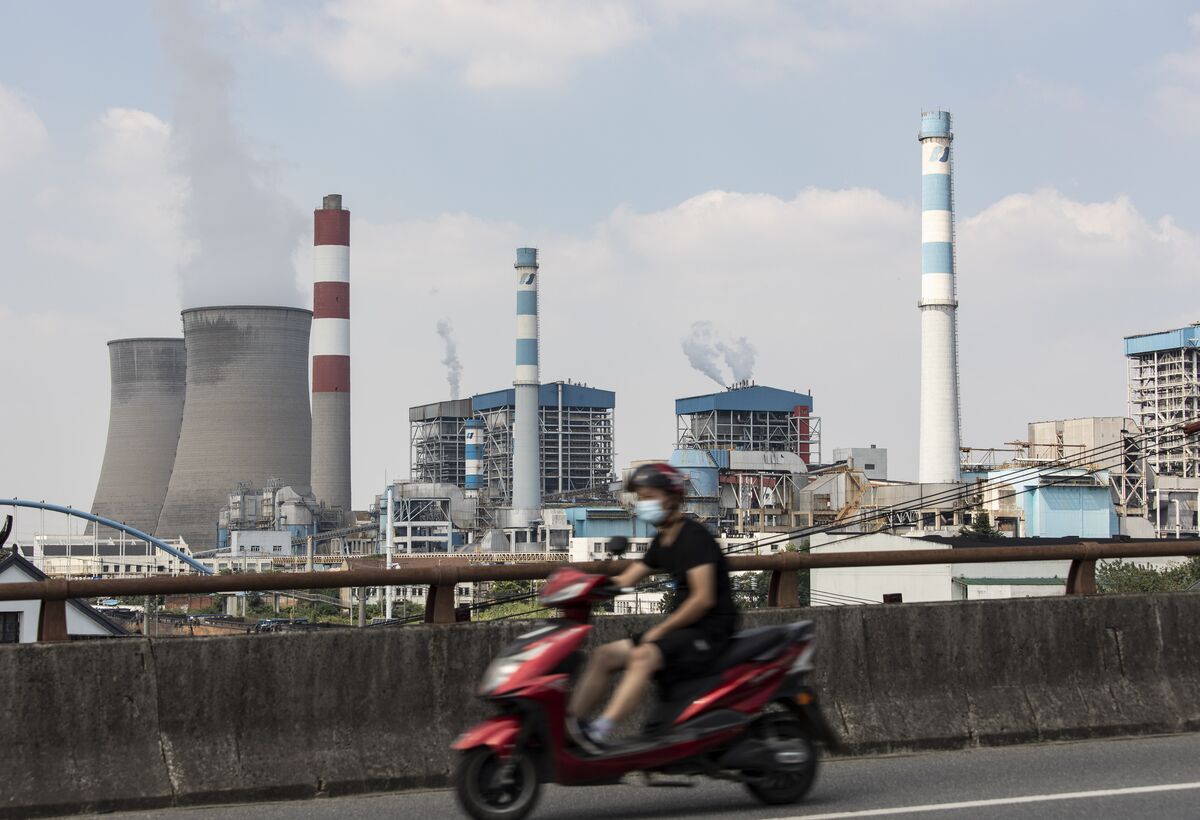
The U.S. tells China to stop piling pressure on Taiwan. Power crisis highlights weaknesses in China’s energy security. Things are looking up for Asian stocks. Here’s what you need to know today.
The U.S. called on China to halt “provocative” pressure on Taiwan after a record number of daily incursions by Chinese warplanes, saying the military actions are destabilizing and risk leading to “miscalculations.” People’s Liberation Army aircraft conducted 16 flights near the territory on Sunday, after 39 on Saturday and 38 on Friday, Taiwan’s defense ministry said. Last week Taiwan said it would make it easier for people fleeing a government crackdown in Hong Kong to settle there, while Taipei applied to join Asia-Pacific’s biggest trade pact— both of which upset Beijing. Here’s why Taiwan is the biggest risk for a China-U.S. clash right now.
China’s energy crisis has highlighted weaknesses in one of President Xi Jinping’s top priorities — energy security. To avoid repeats of the chaos ravaging the world’s second biggest economy, the country will probably have to take major steps toward reshaping its grid and power market, building fuel reserves, and adding more renewable and flexible energy sources. China last week ordered its energy companies to secure supplies at any cost. It’s not just China struggling. In Europe the crisis is moving north, as a shortage of natural gas and coal combines with dwindling water supplies. Nordic power prices were five times higher in September than a year ago. Here’s a stock traders’ guide to navigating the global energy crunch.
Beijing has stepped up efforts to limit the fallout from a potentially huge restructuring of China Evergrande, signaling it’s willing to prop up healthy developers, homeowners and the real estate market at the expense of global bondholders. Authorities told banks to ease credit for homeowners, bought out part of Evergrande’s stake in a struggling bank to ease contagion, and pumped 460 billion yuan ($71 billion) into the system over five days to ease liquidity.
Asian stocks looked set for a solid start to the week after their U.S. peers climbed Friday as prospects for a pickup in growth outweighed concern over inflation pressures. Futures pointed higher in Japan and Australia. Mainland Chinese markets are closed through Thursday for the Golden Week holidays. The S&P 500 rose over 1% Friday after promising results for a Covid-19 pill and positive manufacturing data. Treasuries climbed Friday, taking 10-year yields down to 1.46%, and the dollar fell against every G-10 currency. The yen ticked higher in early trading Monday.
The global economy is entering the final quarter of 2021 with a mounting number of headwinds threatening to slow the recovery from the pandemic recession and prove policy makers’ benign views on inflation wrong.
The spreading delta variant continues to disrupt schools and workplaces. U.S. lawmakers are wrangling over the debt ceiling and spending plans. China is suffering an energy crunch and pursuing a regulatory crackdown, while markets remain on edge as Evergrande struggles to survive.
Here’s a breakdown of the major risks the world is facing.
What We’ve Been Reading
This is what’s caught our eye over the past 24 hours:
And finally, here’s what Tracy’s interested in today
Here we go again. Credit rating agencies are warning that the U.S.'s top credit rating could be in danger if Congress fails to raise the debt limit. “The economic impact of debt prioritization and the potential damage to investor confidence in the full faith and credit of the U.S. (which enables its 'AAA' rating to tolerate such high public debt) may not be compatible with an 'AAA' rating,” Fitch Ratings said on Friday. S&P Global Ratings warned earlier in the week that America's prized triple-A could be at risk, although it noted that it expects the U.S. will ultimately avoid such a scenario.
Normally, when the U.S.'s credit rating is threatened from debt limit drama we see a curious phenomenon: yields on Treasuries actually go down as investors flock to the safety of U.S. government debt. Recent research from JPMorgan showed that yields on benchmark U.S. government bonds have fallen for three out of the past five debt ceiling showdowns thanks to the safe haven bid. That's also what happened the last time S&P downgraded the U.S. due to debt ceiling issues, back in 2011.
It's always a risk to say it's different this time, but there are some complicating factors that could make moves in U.S. bonds more erratic as they face new debt drama and a downgrade threat — the most obvious being that markets are worried about inflation in a way that they haven't been for a while. The only thing that seems sure at the moment, as investors face weeks of political uncertainty, a new payrolls figure and the kick-off of earnings season, is that October is shaping up to be pretty interesting.
You can follow Tracy Alloway on Twitter at @tracyalloway.
"need" - Google News
October 04, 2021 at 06:25AM
https://ift.tt/2YqKV2C
Five Things You Need to Know to Start Your Day - Bloomberg
"need" - Google News
https://ift.tt/3c23wne
https://ift.tt/2YsHiXz
Bagikan Berita Ini















0 Response to "Five Things You Need to Know to Start Your Day - Bloomberg"
Post a Comment